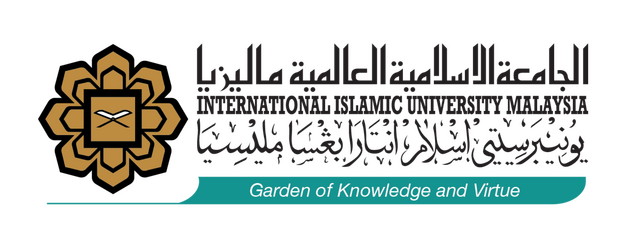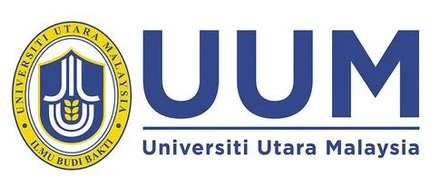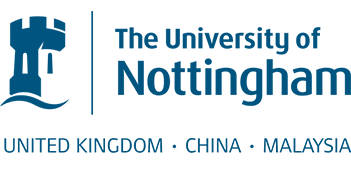
Accounting and Finance is a global field as the process of keeping track of finances and cash flows within a company is done everywhere.
Accounting and Finance are the two main factors of the business financial world. Without it, companies would go bankrupt. Even though everything is getting automatised, accountants and financial managers are still very much needed.
In this guide, we’ll take you through everything you need to know about studying in this field, as well as the benefits you get to enjoy as accounting and/or finance student in Malaysia.
What is accounting and finance about?
People in accounting and finance control and manage a very important part of business – money.
Companies make financial decisions based on their analysis and advice, so accountants and finance managers are among the big players of every organisation. To learn more, you can refer to our general guide about accounting and finance.
The sections below cover questions you may have about studying accounting and finance in Malaysia. Keep in mind though, that aspects such as duration of study, entry requirements and costs are estimated figures as they vary depending on the course and institution.
What is the duration of accounting and finance course?
Generally, the duration per level of study for accounting and finance is:
-
Foundation – 1 year
-
Diploma – 2 years
-
ACCA - depends on your speed, 13 papers in total
-
Bachelor’s degree – 3 to 4 years
-
Master’s degree – 1 to 2 years

What are the entry requirements?
The below requirements are typically what you need to fulfil to be eligible for accounting and finance courses.
- Foundation: 5 credits in relevant subjects including Mathematics, Additional Mathematics and English in SPM or equivalent
- Diploma
- Passed SPM or equivalent with minimum 3 credits including English and Mathematics, or
- Certificate or equivalent in relevant field
- Bachelor’s degree
- Credit in Mathematics and passed English at SPM level, and
- Passed STPM or equivalent with minimum CGPA of 2.0, or
- Foundation or Diploma in related field (usually with CGPA of 2.0 and above)
- Master’s degree: Bachelor’s degree (with honours) or equivalent in relevant field
How much does it cost to study accounting and finance courses?
The estimated fees shown in this section take into account both public and private universities in Malaysia, hence the wide range. As a general estimate, the cost of studying accounting and finance courses per level of study in Malaysia is:
-
Foundation – RM 10,000 to RM 26,000
-
Diploma – RM 20,000 to RM 60,000
-
Bachelor’s degree – RM 11,000 to RM 115,000
-
Master’s degree – RM 18,000 to RM 50,000
Where can you study accounting and finance courses in Malaysia?
Malaysia’s universities made it on the exclusive list of the world’s best institutions for accounting and finance according to QS World University Rankings 2024. That’s quite a feat!
Another list to take note of is the SETARA rating system, which assesses teaching, research and services of the higher learning education institutions in Malaysia. Below are universities you might want to consider studying at for your accounting and/or finance degree.
11 Universities in Malaysia for Accounting and Finance
- Universiti Malaya (UM)
- Universiti Putra Malaysia (UPM)
- Universiti Kebangsaan Malaysia (UKM)
- International Islamic University Malaysia (IIUM)
- Universiti Teknologi MARA - UiTM
- Universiti Utara Malaysia (UUM)
- Universiti Teknologi Malaysia (UTM)
- Universiti Sains Malaysia (USM)
- Asia Pacific University of Technology & Innovation (APU)
- MONASH University
- The University of Nottingham
1. Universiti Malaya (UM)
Universiti Malaya (UM) is the highest ranking public university for accounting and finance in Malaysia, and places 66th in the world according to the 2024 World University Rankings by Subject. UM’s degree programmes are recognised nationally and internationally. The university’s faculty of business and accountancy also publishes 2 research journals, highlighting UM’s focus on advancing the field. Accounting and Finance are offered as 2 separate Bachelor degrees, while postgraduate programmes are available as well.
2. Universiti Putra Malaysia (UPM)
Universiti Putra Malaysia (UPM) School of Business and Economics is the first university faculty in the country to achieve accreditation from the prestigious Association to Advance Collegiate Schools of Business (AACSB). This is no surprise, as the university is reputed for its academic excellence. Most of the faculty’s lecturers are PhD holders, so students are really learning from the best and the most experienced.
3. Universiti Kebangsaan Malaysia (UKM)
Universiti Kebangsaan Malaysia (UKM) places a strong emphasis on the quality of its programmes so that students are equipped with relevant and important skills for the demanding profession of accounting. UKM’s list of prominent alumni includes Datuk Che Pee Samsudin, who graduated with the university’s Bachelor of Accounting degree. He went on to become the Accountant General of Malaysia!
4. International Islamic University Malaysia (IIUM)

International Islamic University Malaysia (IIUM)'s Department of Accounting provides both undergraduate and postgraduate programmes for students related to the modern accounting and business profession. The university's Bachelor of Accounting grants maximum exemption of examination papers by the Association of Chartered Certified Accountants (ACCA), Malaysian Institute of Certified Public Accountants (MICPA) and many more. IIUM also has different departments for finance, economics and business administration.
5. Universiti Teknologi MARA (UiTM)
UiTM is one of the top universities in Asia, ranking within the Top 250 for Accounting and Finance according to 2024 QS rankings. The university offers various specialisations in accounting, such as a Diploma In Accounting Information System and the unique Master In Forensic Accounting And Financial Criminology. That’s right – you could be a Forensic Accountant, which is one of the coolest jobs ever.
6. Universiti Utara Malaysia (UUM)

Universiti Utara Malaysia (UUM) Tunku Puteri Intan Safinaz School of Accountancy (TISSA) was founded along with UUM in 1984, being one of the largest and oldest accounting schools in Malaysia. Students interested in applying for its Bachelor of Accounting (Honors) have to undertake a rigorous selection process to enter the programme.
7. Universiti Teknologi Malaysia (UTM)
Universiti Teknologi Malaysia (UTM) is not only a recipient of SETARA’s 6 Star: Outstanding award, but is also classified as one of Malaysia’s mature universities. At this top institution, students can pursue accounting in the university’s business school - the Azman Hashim International Business School. Some core courses include principles of microeconomics, business mathematics and financial management.
8. Universiti Sains Malaysia (USM)
Universiti Sains Malaysia (USM) received the 6 Star: Outstanding award, which is the highest level of quality a university can be rated for in the SETARA system. USM offers a Bachelor of Accounting course under its School of Management, while finance is one of the major academic areas in the university’s Bachelor of Management.
9. Asia Pacific University of Technology & Innovation (APU)
The Asia Pacific University of Technology & Innovation (APU) is amongst Malaysia’s Premier Private Universities and is where a unique fusion of technology, innovation and creativity works effectively towards preparing graduates for significant roles in business and society globally. APU has earned an enviable reputation as an award-winning University through its achievements in winning a host of prestigious awards at national and international levels.
10. Monash University Malaysia
Australia’s Monash University ranked at number 35 in the global QS scale for accounting and finance. At Monash University (Malaysian campus), students get to experience the same world-class education, at a cheaper price! The university’s department of Accounting and Finance are one of the largest in its School of Business, with staff that is very active in the research community. Accounting or Banking and Finance are offered as majors for undergraduate students of business and commerce.
11. University of Nottingham Malaysia
Ranked with the 5 Star: Excellent award, the Malaysian campus of UK’s distinguished University of Nottingham is one of the country’s best higher learning institutions. Finance, accounting and management are offered as one programme for undergraduate students, while postgraduate students can pursue a Masters in Finance and Investment, or finance as an MBA specialisation.
What subjects will you study in Accounting and Finance course in Malaysia?
There are many interesting topics you will cover throughout your programme. Here are some examples:
-
Business Law
-
Marketing
-
Investment Analysis
-
Economic Principles
-
Quantitative Methods
-
Taxation and Auditing
-
Management Strategies
-
Accounting Information Systems
Course structure differs between universities, but typically the programme will have core and elective modules, as well as industrial training for undergraduate students. Postgraduate students usually have to complete a dissertation or thesis as part of their studies.
Should you study accounting and finance course in Malaysia?
Deciding whether to study accounting and finance is a significant choice that requires careful consideration of your interests, skills, and career goals. Here are some factors to consider when making this decision:
1. Interest and aptitude
Are you genuinely interested in numbers, financial analysis, and business operations? Do you enjoy problem-solving and critical thinking? Studying accounting and finance requires a strong aptitude for quantitative analysis and attention to detail. If you have a passion for understanding how businesses operate and thrive in the financial world, this field may be a good fit for you.
2. Career opportunities
Accounting and finance offer a wide range of career opportunities in various industries, including public accounting firms, corporations, financial institutions, government agencies, and non-profit organizations. With a degree in accounting and finance, you can pursue roles such as accountant, auditor, financial controller, bank manager, tax consultant, and more. These professions often offer stability, competitive salaries, and opportunities for advancement.
3.Skills development
Studying accounting and finance equips you with valuable skills that are highly sought after in the job market. These include financial analysis, budgeting, risk management, auditing, taxation, and regulatory compliance. These skills are transferable across industries and can open doors to diverse career paths.
4. Professional Certification
Pursuing a degree in accounting and finance provides a solid foundation for obtaining professional certifications such as Certified Public Accountant (CPA), Chartered Financial Analyst (CFA), Institute of Chartered Accountants in England and Wales (ICAEW), and others. These certifications enhance your credibility, marketability, and earning potential in the field.
What are the career options?

If you're wondering about post-study job opportunities, the answer is plenty! As mentioned earlier, accounting and finance are crucial in any business, so recruiters are always seeking candidates like you. And, if you're curious about the salary prospects for accountants and other job opportunities in Malaysia, this table will provide insight into potential careers and their corresponding earnings.
|
Career |
Estimated average yearly income |
|
Accountant |
RM 48, 096 |
|
Bank Manager |
RM 101, 489 |
|
Financial Controller |
RM 176, 642 |
|
Chief Financial Officer (CFO) |
RM 251, 021 |
What are the benefits studying accounting and finance in Malaysia?
Besides being able to study at some of the world’s best universities, students in Malaysia also get to:
-
Spend less on excellent education
-
Earn the best accounting and finance qualications in Malaysia and on a global scale
Spend less on excellent education
With Malaysia's universities continually making their mark on prestigious lists such as the QS World University Rankings and the Times Higher Education (THE) World University Rankings, Malaysia is gaining a reputation for quality education on the international stage.
This is one of the reasons that more and more international students are choosing Malaysia as their study destination.
As a local, you have a greater advantage because both public and private universities charge lower for Malaysian students! Generally, this is the case for all countries – universities usually have cheaper tuition fees for their local students. So, if you were to study abroad as a foreign student, you would have to pay much more.
The table below will give you an idea of how much it costs to study a Bachelor's degree in Accounting and Finance overseas in reputable universities:
|
Country |
Estimated tuition fees |
|
Malaysia |
RM 11,000 – 115,000 |
|
Singapore |
RM 90,000 – 300,000 |
|
UK |
RM 130,000 – 440,000 |
|
Australia |
RM 188,000 – 750,000 |
|
USA |
RM 314,000 – 644,000 |
Earn the best accounting and finance qualications in Malaysia and on a global scale
There are many globally-recognised professional qualifications that you can pursue in the comfort of your home turf. In other words, these qualifications can boost your chances of getting work not just in Malaysia, but anywhere else in the world. Here are some accounting qualifications that you might want to check out:
-
Association of Chartered Certified Accountants (ACCA). ACCA is one of the major professional accountancy bodies across the globe, with over 233,000 members and 536,000 students from 178 countries. To earn an ACCA qualification, students must pass up to 13 exams, Ethics and Professional Skills module, and have 3 years of work experience.
-
Institute of Chartered Accountants in England and Wales (ICAEW). Founded in 1880, ICAEW is trusted and respected all over the world. The organisation’s qualification, ACA consists of 15 modules.
-
Chartered Financial Analyst (CFA). CFA is an association for investment management professionals, with networks across regions. To become a CFA charterholder, you must complete the CFA programme, which has exams in 3 levels.
-
Malaysian Institute of Certified Public Accountants-Chartered Accountants Australia and New Zealand (MICPA-CAANZ). The signing of a Memorandum of Understanding (MoU) in 2009 between MICPA and Chartered Accountants Australia and New Zealand (CA ANZ) marks a significant collaboration, facilitating mutual access to both bodies' professional examinations. Graduates of the MICPA x CA ANZ Qualifying Programme can obtain two prestigious professional qualifications: CPA (Malaysia) and CA (ANZ), underscoring MICPA's dedication to advancing the interests of students, members, and the accounting profession.
Well, that’s about it for this guide. All the best in your student journey!




























